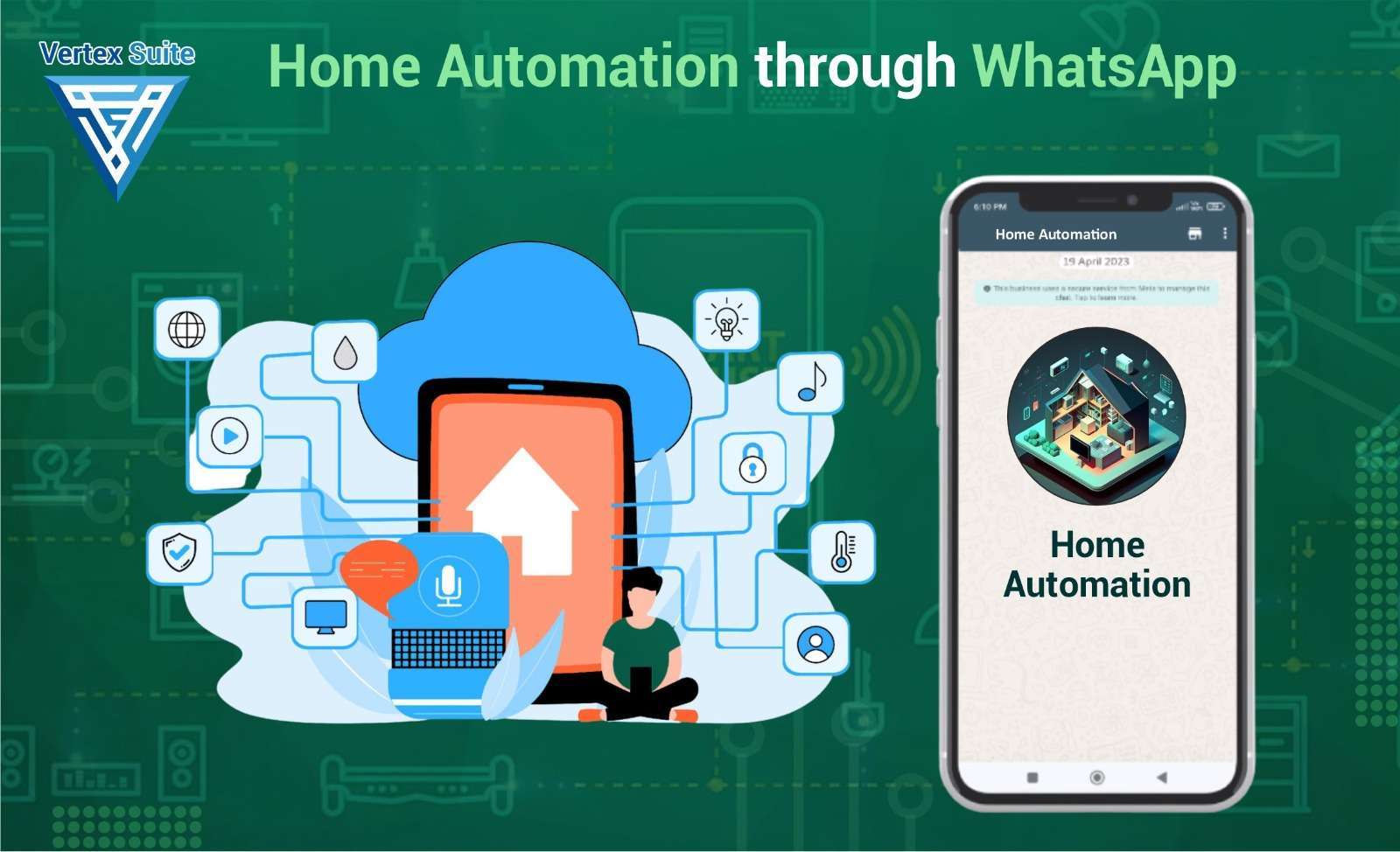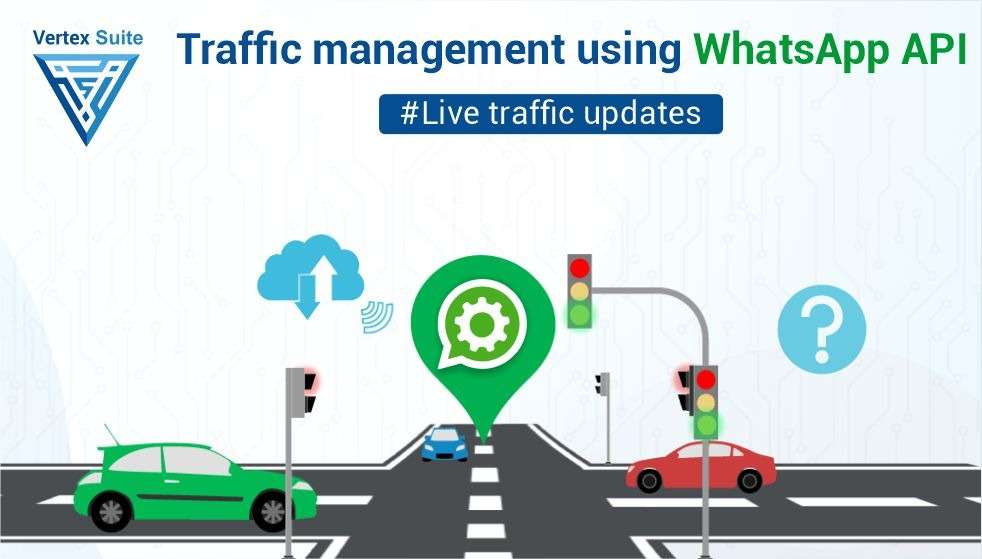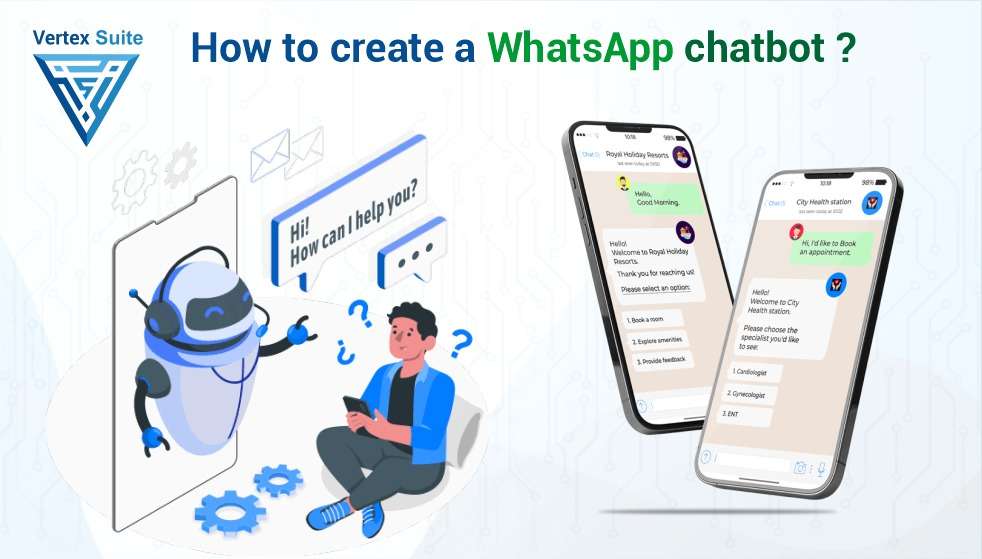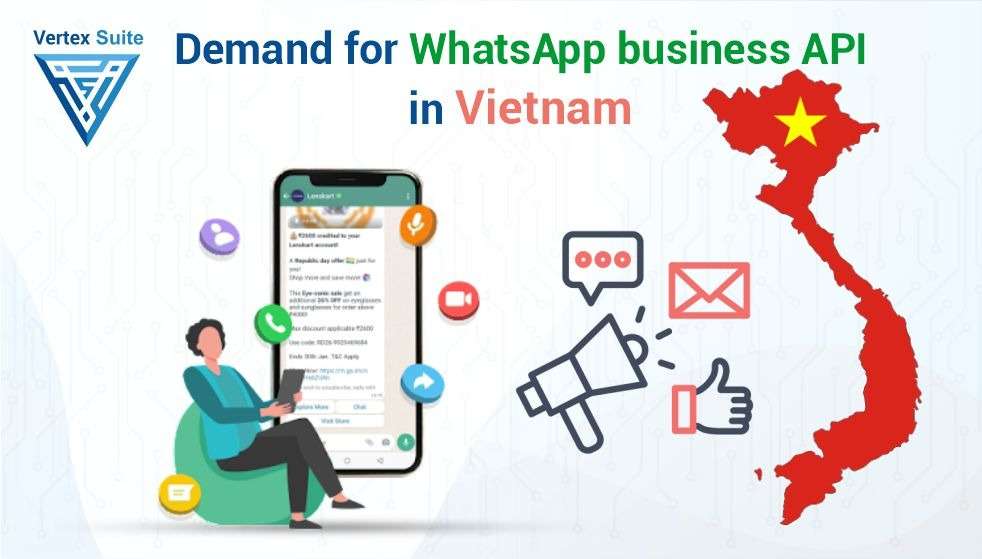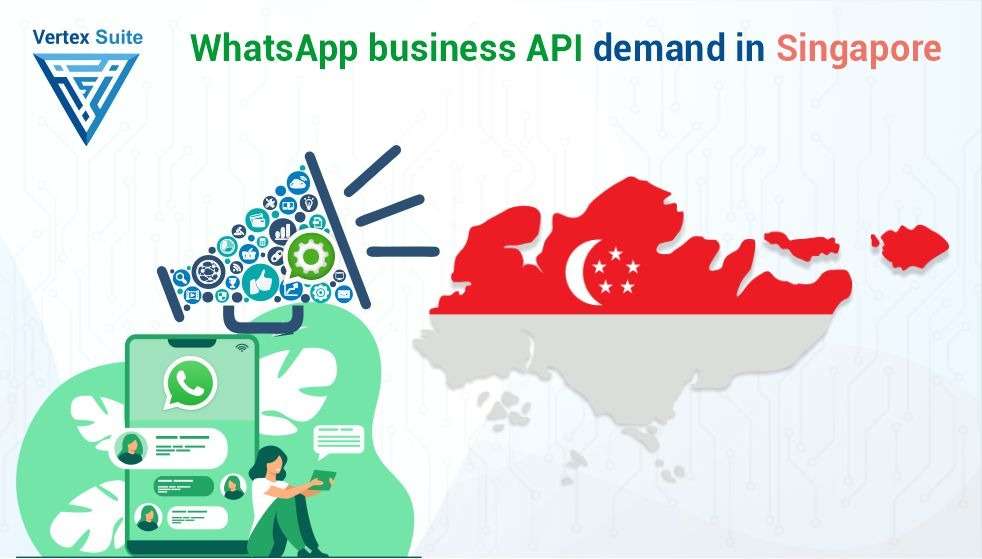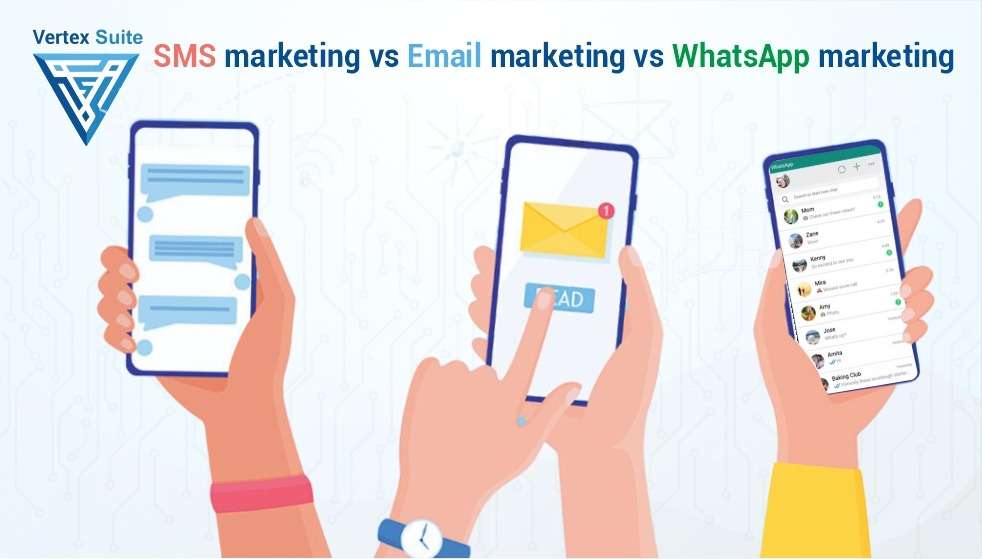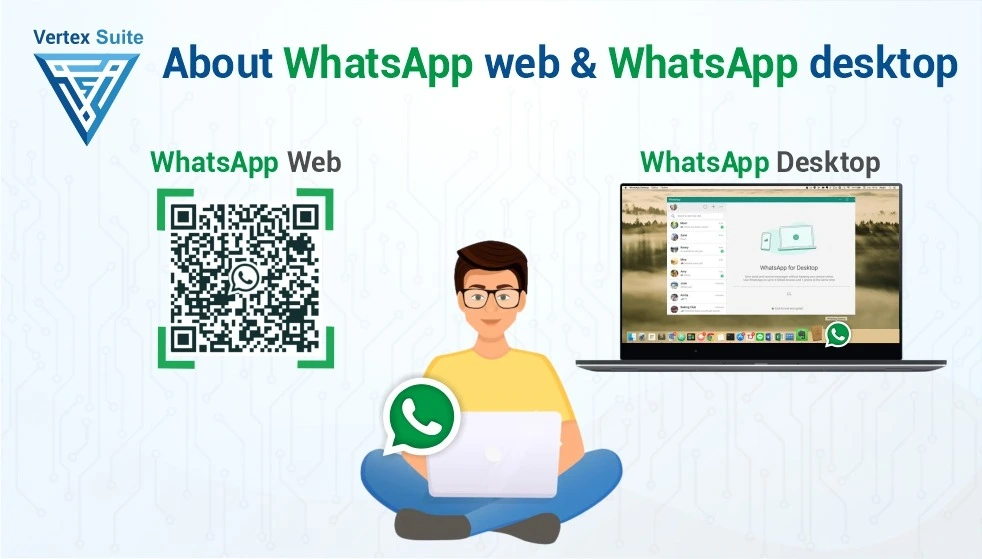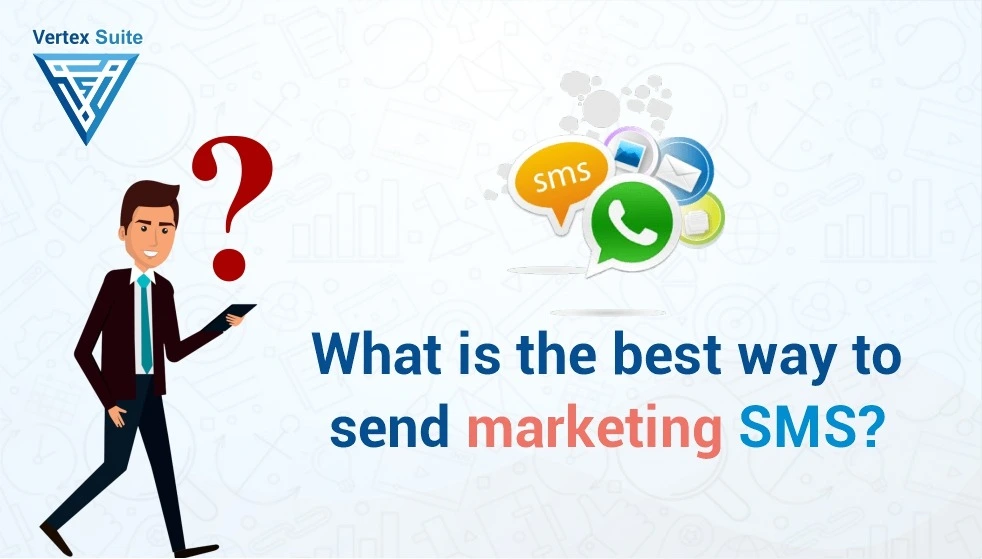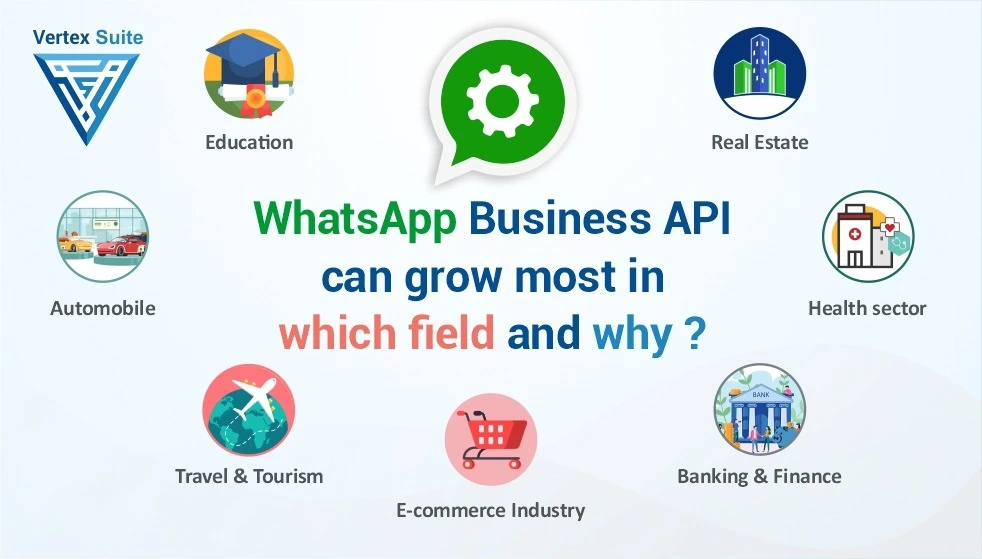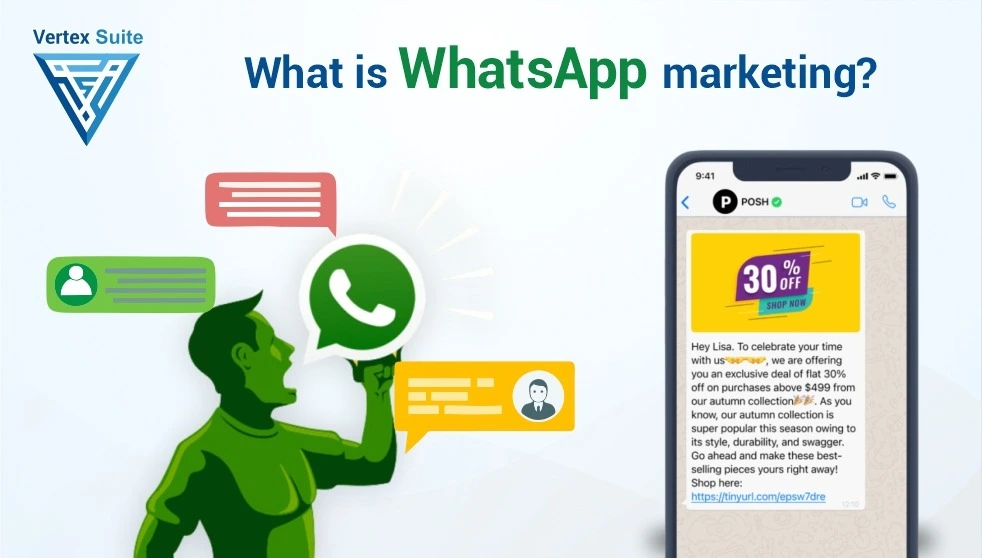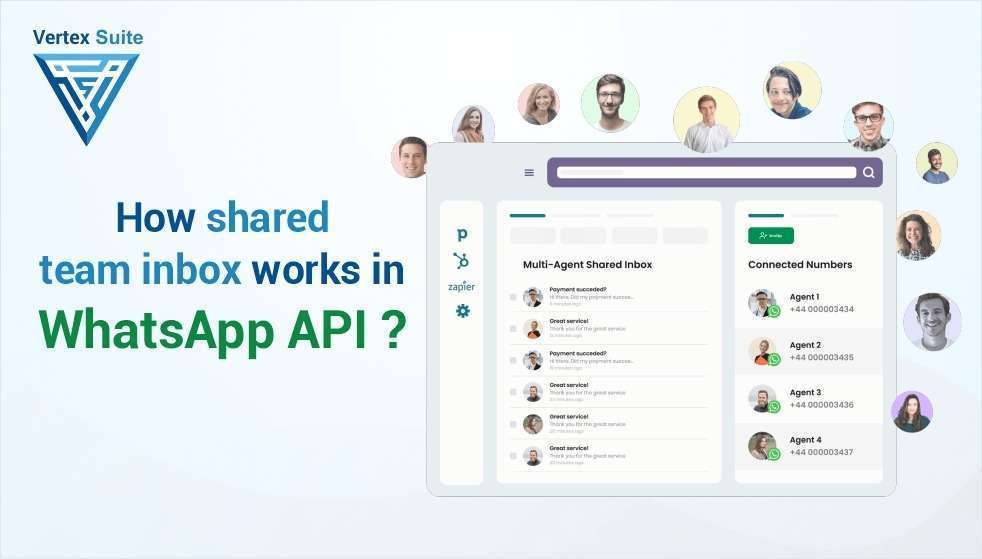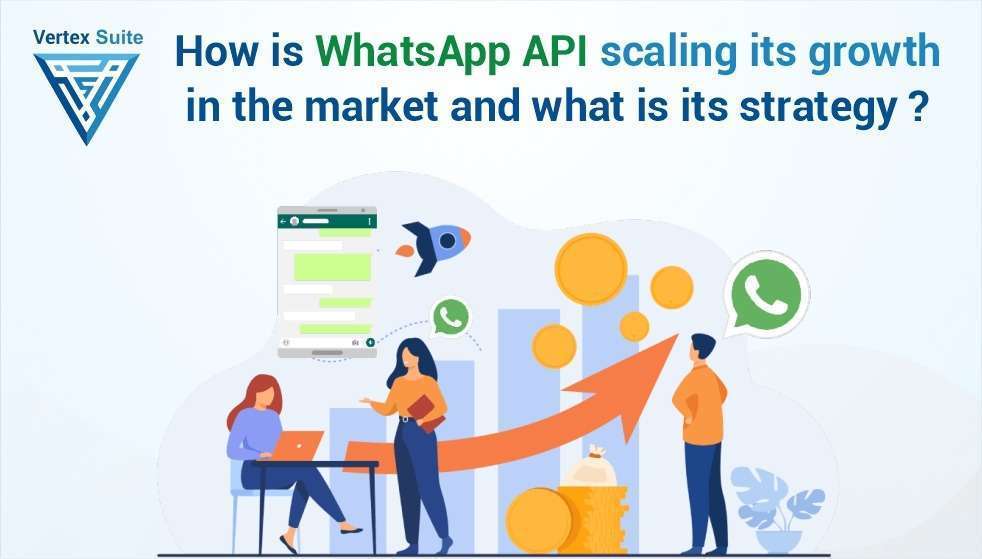WhatsApp has undergone significant changes in terms of services, evolving beyond merely a messaging platform to become a versatile medium for connection, sharing, and conducting business. The platform has transitioned remarkably, offering a multitude of services ranging from messaging and calls to location sharing and facilitating business transactions. This transformation has proven immensely beneficial for companies seeking efficient ways to engage with their customers and market their products and services. In fact, Meta, the parent company of WhatsApp, Facebook, and Instagram, has observed a doubling of WhatsApp business requirements in India compared to other regions, indicating the platform's widespread adoption and frequent use for business purposes.
WhatsApp's new business API feature is revolutionizing the business market. Meta allows individuals with a strong software background to become WhatsApp service providers. Once verified as business API providers, companies and organizations can approach them to activate API services. These providers assist in integrating WhatsApp business API with existing systems, enabling businesses to leverage its amazing features to connect with their customers in advanced ways.
Business Solution Providers
A WhatsApp Business Solution Provider refers to a third-party service provider approved by WhatsApp to offer business solutions and tools to companies seeking to enhance their communication on the WhatsApp platform. These service providers play a crucial role for organizations utilizing WhatsApp for customer assistance, engagement, and various other purposes.
Let's explore how it operates:
1. WhatsApp Authorization: Providers receive authorization from WhatsApp to deliver business solutions.
2. Business Account Setup: They assist businesses in creating verified WhatsApp Business Accounts.
3. Integration: Providers integrate the WhatsApp Business API into existing systems or CRM tools.
4. Features and Functionality: They grant access to WhatsApp API features for notifications, responses, and transactions.
5. Customer Communication: Facilitating businesses to timely send updates and messages to customers.
6. Automation Chatbot: Offering solutions for automating routine tasks and integrating chatbots.
7. Analytics and Reporting: Providing tools for tracking performance and user engagement.
8. Compliance: Ensuring businesses adhere to WhatsApp policies for privacy and anti-spam.
9. Support and Maintenance: Offering ongoing support, troubleshooting, and system updates.
In the market, there are numerous verified service providers offering API integration. It's crucial to reach out to those who can align with your business needs. Different service providers offer various functionalities and features. They present different packages and plans tailored to suit organizations. Let's explore how these service providers differ from one another.
1. DoubleTick:
- No free trial available.
- Heavy monthly subscription.
- Inconsistent data accuracy.
2. BotSpace:
- Comparatively expensive compared to other solution providers.
- Markup costs on communications delivered and received
- Specifically tailored for the WhatsApp environment.
- Lack of user interface for a complex bot builder (Support engineer's acknowledgment is needed for any minor changes to the bot).
3. Yellow.ai:
- Account approval takes 7 days.
- Customer support is available via email or form submission only, with no direct calling facility.
- Pricing is not listed on the website; a quote must be requested.
4. Respond.io:
- It is expensive.
- There is no option to automatically delete inactive contacts.
- There is no facility for phone calls for inquiries. Contact customer care only by email, which may take up to 2-3 days to respond.
5. Twilio:
- Inadequate client support.
- High pricing.
- Requires technical knowledge to get onboard.
- Bulk communications, broadcasts, and emails have a lower deliverability rate.
- Due to patent limits, Twilio recommends using phone numbers provided by Twilio to access the WhatsApp Business API. Non-Twilio phone numbers can also be utilized, but some restrictions apply.
- As there is no fixed rate, service expenses may rise significantly as a business grows.
6. Messagebird:
- It doesn’t provide telephonic support.
- Limited templates available for chat flow.
- High pricing.
- Complex UI for non-tech persons.
7. MSG91:
- Limited chatbot functionality.
- No explicit mention of 24/7 support.
- No dashboard.
8. Interakt:
- 24*7 assistance not mentioned.
- Tedious/challenging integration.
- Limited features in the primary pack.
- Software bugs.
- Limited customization options.
- Opt-in and out automatic flow is not available.
What does Vertex Suite provide?
- Drag-and-drop feature
- Cloud API integration
- Customized pricing feature
- Suitable for non-sales use cases
- Detection of inactive contacts
- WhatsApp forms (application, Excel sheet, form fill-ups, etc.)
- Support for multiple languages
- Carousel message
- Limited-time offer message
- Coupon message
- Ice breaker message (welcome message)
- Custom API integration
- Request location message
Comparison with other providers:
DoubleTick:
- No Free Trial: DoubleTick lacks a free trial option, users have to pay before experiencing the service.
- Heavy Monthly Subscription: Users bear the burden of a significant monthly subscription fee, making it a costly commitment.
- Inconsistent Data Accuracy: DoubleTick's data accuracy is unreliable, posing potential challenges in decision-making processes.
BotSpace:
- Expensive Pricing: BotSpace stands out as a costly solution compared to other providers in the market.
- Markup Fees: Additional markup fees on messages sent or received increase the overall expense for users.
- WhatsApp-Exclusive Environment: Designed solely for WhatsApp, BotSpace lacks versatility across multiple platforms.
- Complex Bot Builder: Users encounter complexities in the bot-building process due to the absence of a user-friendly interface. Minor changes often require support engineer intervention.
Yellow.ai:
Delayed Account Approval: Yellow.ai takes up to 7 days for account approval, delaying user access to the platform.
Limited Customer Support Channels: Customer support is restricted to email or form submission, lacking the urgency of direct calling facilities.
Opaque Pricing: The absence of transparent pricing on the website necessitates users to request a quote, introducing uncertainty in cost estimation.
Respond.io:
- High Cost: Respond.io is positioned as an expensive solution, potentially limiting accessibility for budget-conscious users.
- Inactive Contact Management: Respond.io lacks the functionality to automatically delete inactive contacts, impacting database management.
- Limited Support Channels: Users can only connect with customer support via email, resulting in delayed responses to queries.
Twilio:
- Technical Entry Barrier: Twilio requires users to possess technical knowledge for onboarding, potentially excluding those without a technical background.
- Constraints on Phone Number Usage: Twilio encourages the use of proprietary phone numbers, limiting flexibility for users with existing numbers.
- Customer Support Challenges: Twilio is criticized for subpar customer support, affecting issue resolution and user experience.
- Pricing Complexity: High pricing, particularly with escalating costs as businesses scale, poses financial challenges for users.
Messagebird:
- Lack of Telephonic Support: Messagebird does not provide telephonic support, limiting immediate assistance options.
- Template Limitations: Users face constraints with limited chat flow templates, potentially hindering customization options.
- High Pricing: Messagebird's pricing structure is relatively high, impacting the affordability of the service.
- Non-Intuitive UI: A complex user interface may pose challenges for non-tech-savvy users.
MSG91:
- Chatbot Functionality Constraints: MSG91 lacks advanced chatbot features, potentially limiting the range of automated interactions.
- Support Availability Uncertain: The absence of explicit 24/7 support creates uncertainty regarding timely issue resolution.
- Dashboard Absence: The lack of a comprehensive dashboard limits real-time monitoring and management capabilities.
Interakt:
- Support Availability Concerns: Interakt does not explicitly mention 24/7 assistance, raising concerns about timely issue resolution.
- Integration Challenges: Tedious and challenging integration processes may deter users, particularly those seeking a seamless onboarding experience.
- Feature Limitations in Primary Pack: The primary pack offers limited features, potentially restricting the range of functionalities available to users.
- Software Bugs: Users may encounter challenges related to software bugs, impacting the overall reliability of the platform.
- Customization Constraints: Limited customization options may restrict users seeking tailored solutions.
- Opt-in/Opt-out Automation Absence: The lack of automated opt-in and opt-out flows introduces manual processes, potentially affecting user experience.
What Vertex Suite Provides:
- Drag and Drop Feature: Vertex Suite introduces a user-friendly drag-and-drop feature for simplified operations.
- Cloud API Integration: Seamless connectivity is ensured through Cloud API integration, enhancing the overall user experience.
- Customized Pricing Options: Vertex Suite offers flexible and customized pricing options to cater to diverse business needs.
- Versatility for Non-Sales Use Cases: Beyond sales, Vertex Suite proves suitable for various non-sales use cases, ensuring broad applicability.
- Inactive Contact Detection: The platform includes a unique feature for detecting inactive contacts, aiding in database management.
- WhatsApp Forms: Various form formats, such as applications, Excel sheets, and form fill-ups, enhance user engagement.
- Multi-Language Support: Vertex Suite caters to diverse user bases with support for multiple languages.
- Rich Messaging Features: Additional features like Carousel messages, Limited Time Offer messages, Coupon messages, and Icebreaker messages provide a diverse and engaging messaging experience.
- Custom API Integration: Users benefit from the flexibility of custom API integration, facilitating seamless integration with existing systems.
- Location-Based Messaging: The platform includes a feature for requesting location messages, enhancing user interaction and engagement.


